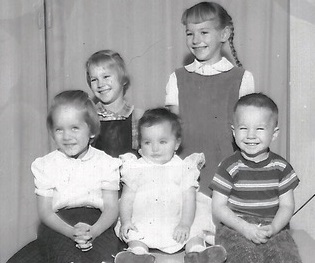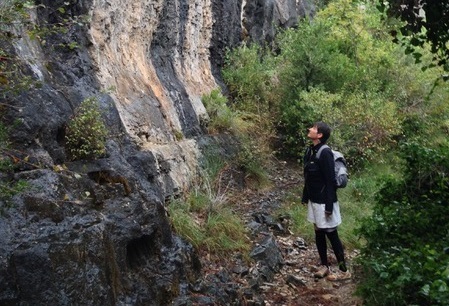Susie Meyer - breaking the mould
Sue Wards
22 August 2019, 9:17 PM
 Susie Meyer. PHOTO: Wanaka App
Susie Meyer. PHOTO: Wanaka AppWanaka GP Susie Meyer may not fit the stereotype of a rural general practitioner (GP), but that’s not surprising, as she followed a less traditional path into medicine.
The fifth of 11 children born to a family of “careless Catholics” in Washington State, Susie was a cheeky bespectacled girl with her nose in a book (when she wasn’t playing sport). She came from a working class family where everyone grew up to be a teacher or “helper” of some kind.
She aspired to change the world as an activist and, at university in the late 1970s, it was all about feminism, along with all the other things that came with the 70s.
After dropping out of university in the US, Susie and a friend became ski bums and moved to Wyoming. “We thought skiers had a cool lifestyle.” She and a friend drove a borrowed station wagon to ski resort Jackson Hole, where she stayed for four years. After meeting a Kiwi who suggested she study medicine, Susie agreed and moved to Auckland where she enrolled at university.
“I thought it would be a good idea to be a doctor and do some good, so I was driven by that.” She was certainly driven: first she had to complete a BSc; having never done sciences, she enlisted the help of tutors to get started and read the chemistry text book cover to cover. Susie likes forming groups, and at medical school she set up study groups (“I picked people who were smarter than me”) so her learning was social.

Susie (seated centre) with four of her ten siblings. PHOTO: Supplied
There was plenty of scope for Susie’s activism at medical school - she wanted to promote cooperation over competition. She worked to change the university’s policy of posting people’s ranked exam results to using code numbers instead of names; arranged for better access to counsellors; and organised tutorials for Pasifika students.
It was the 1980s, and while Susie liked New Zealand’s “girls can do anything” approach, she noticed it was tempered with “as long as they make everyone a cup of tea too”.
She decided to live in Dunedin for her intern years, and spent three years at the hospital before getting winter work on Wanaka’s skifields, which she alternated with summers at the hospital. In those days, Treble Cone’s on-duty doctor was also a ski patroller, pulling rigs and exploding bombs for avalanche control. Susie loved it.
When she graduated she was 35 with a young son (Beach, now 28-years-old, with her partner Whitney Thurlow). Susie decided to take her father’s advice: “Don’t worry about what you want to do, worry about where you want to live.” Susie wanted to live in a small town and Wanaka fit the bill.
As a training GP she commuted daily to Alexandra or Queenstown - over the gravel Crown Range. There were no female GPs in Wanaka, and people kept asking Susie to set up a practice. She initially set up on her own in 1995, in a small sleepout behind the dentist, which she decorated with items from home. “It was all very homespun.”

Susie has kept active. PHOTO: Supplied
Susie had trained with Lucy O’Hagan and Simon Brebner in Dunedin, and connected well with them - all three were a little “out of the norm”, she said.
She asked them to join her in her fledgling practice and they agreed. “Setting up the new practice created diversity in Wanaka township,” Susie said.
But she and Lucy had to find a new formula of working as GPs. “Basically we had to re-invent the model, because we didn’t have wives at home.” They came up with the shared patient concept, and worked in teams.
The practice, Aspiring Medical, eventually moved to premises on Dungarvon Street, then expanded; and finally moved to the new Wanaka Lakes Health Centre in 2011.
It was a busy life. Susie and Whitney also operated a business called Wild Walks for eight years (it has now been amalgamated with Aspiring Guides). Susie would be on call at night for the practice 14 hours at a time; she often worked nights and weekends, and missed countless social engagements. She had her first Christmas off three years ago.
“These sorts of commitments are a service, a career of dedicating yourself to the community,” she said. “Also, these things are not done in isolation there is a whole team of health workers supporting me.”
The work was varied and challenging. Dealing with car accidents, and supporting people who are dying are some of the hardest aspects of a rural general practice, she said.
Susie also maintained her involvement with groups. She served on a range of advisory committees, including the national advisory committee for the Royal NZ College of GPs (RNZCGP). She was a member of the Central Lakes Health Network, advising the Southern District Health Board on service delivery in the district, and teacher liaison for the RNZCGP. She taught undergraduate and postgraduates in medicine for 17 years, which took her to many practices around Otago and Southland. She was instrumental in negotiating for the Wanaka after hours service that she believes is the gold standard for care. Susie’s involvement has been such that last weekend she was recognised by the RNZCGP for a career of community service.
Related: GP recognised for community service
After 25 years in Wanaka, Susie says the issues of equity and access to health care services remain, but while public health care stops at Dunstan Hospital in Clyde, Wanaka’s access to private care has been maintained - for example, you can usually be seen by a GP on the same day you call to book an appointment.
“People who come here now have less difficulty getting access to health care. We are much more of an urban environment,” she said. There’s a flip side: our rapid population growth is challenging infrastructure development, she said. And the fact that we are the furthest community from a base hospital remains an issue. The answer for now is that rural GPs have to be upskilled, Susie said.
She retired from clinical work in March this year. She retired before 65, she said, because she was “worried about becoming an old fuddy-duddy doctor”. Susie wanted to stay dynamic in her approach but figured she may not be as sharp as she was at 35. Plus, she wanted to be more creative and she’s seen too many people retire too late to enjoy it. She wanted to take advantage of having kept active with skiing, tramping, biking and walking.
Being a GP in a small town means you know a lot about people, and while you may get approached in the supermarket for health advice, you’re also very aware of the people around you and what they’re going through, Susie said. “The thing I’ll probably miss is knowing people in depth.”
“I want to be more creative, free of time pressure, free of the burden of working so much,” she said. “My life used to be scheduled six months ahead. Now I don’t have any time pressure.”
She has some plans for retirement, such as a few writing projects to finish - including a young-adult novel which she somehow managed to write in what spare time she has. She might try to publish it. “I’m a sort of ambitious character.”
She has also written her own story of doctoring in Wanaka, which will appear in the upcoming second edition of Skirt Tales (an update of the Suffrage centennial historical accounts of women in the district) - her “first published piece”.
Susie has retired from general practice but not from activism. “I want to do some good activist work. I’ve done women, I’ve done health; I’d like to do something for the environment. I’m going to see if I can offer something,” she said.

